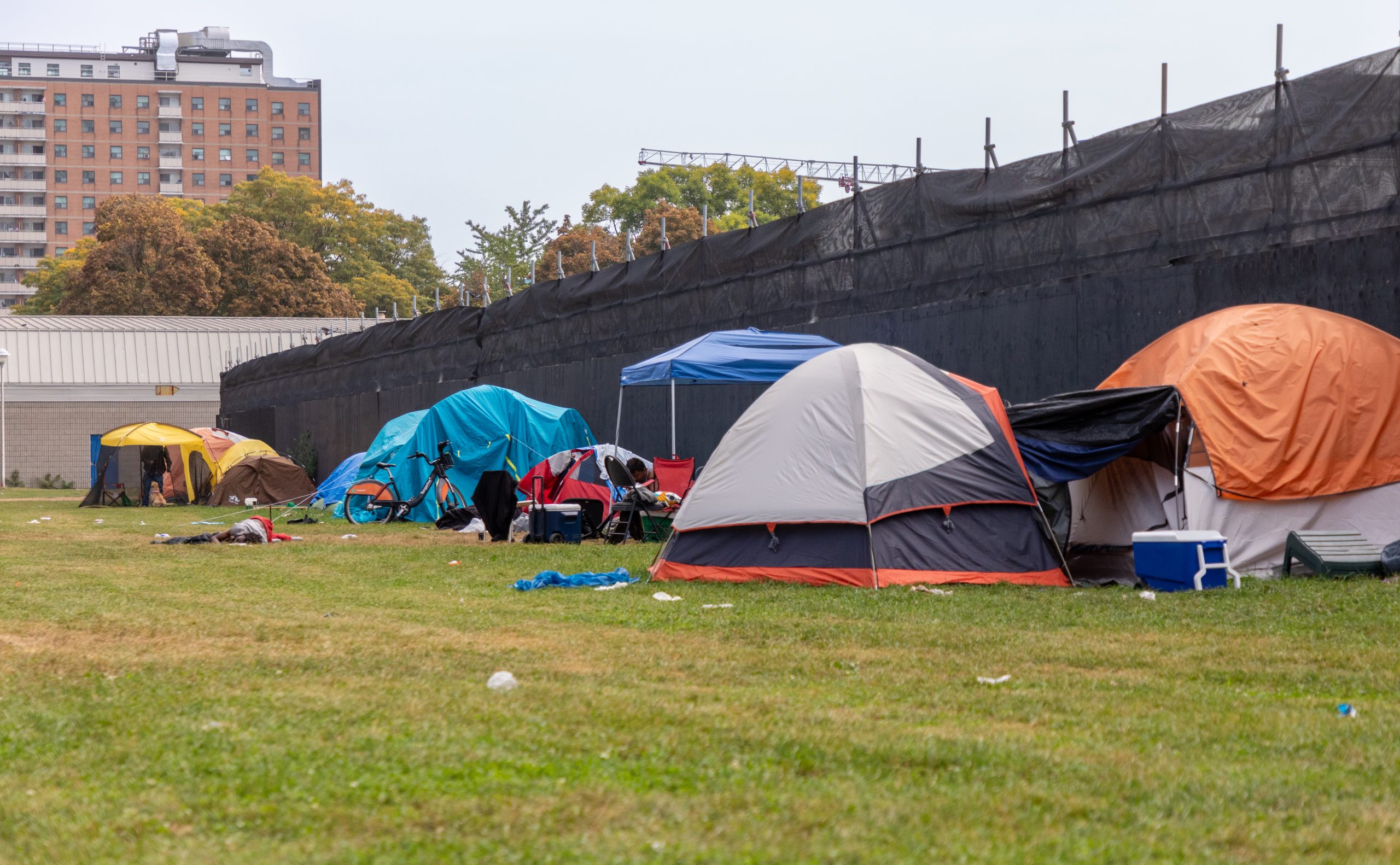
Ontario Premier Doug Ford says his government will introduce new legislation to dismantle homeless encampments and is prepared to use the controversial Notwithstanding Clause to thwart any potential legal challenges.
Ford announced his plan for the new legislation on Thursday, saying it comes at the behest of 12 mayors who sent him letters asking for help dealing with the issue of encampments.
Toronto Mayor Olivia Chow was notably not among the mayors who sought Ford’s help.
Referencing the 12 mayors and their concerns, Ford said in a letter posted to social media that his government “shares your concerns about the need to keep our children, families and communities safe. That’s why we are acting to put an end to the public disorder, drug use, trafficking and loss of public space that have resulted from the widespread growth in encampments. These are serious problems that are impacting communities across Ontario with people rightly demanding action.”
“Enough is enough,” Ford said.
Mayors from across Ontario have asked for our help to deal with homeless encampments that are taking over public spaces and making their communities unsafe. I agree. Enough is enough.
Today, I let them know that we will be stepping up with new measures to protect communities… pic.twitter.com/BWjawSChpx
— Doug Ford (@fordnation) December 5, 2024
Encampments started cropping up in many of Toronto’s parks when the COVID-19 pandemic hit in 2020, as people left shelters out of fear of contracting the virus.
In August, the Association of Municipalities of Ontario said Ontario saw at least 1,400 homeless encampments throughout the province in the previous year.
With them came concerns about public safety and open drug use.
Ford has promised that his government will compassionately address those concerns by investing in treatment and housing.
“Solving the homelessness crisis starts with more treatment beds and places to call home. Ontario is making unprecedented investments in mental health, addiction recovery, and homelessness prevention services, including nearly $700 million annually through our provincial homelessness prevention programs, to ensure we can provide more roofs over the heads of people experiencing homelessness.”
He also cited his government’s $378 million investment in creating 19 Homelessness and Addiction Recovery Treatment (HART) hubs.
Ford won’t let legal challenges impede him
Ford outlined the goals of the new legislation, saying it will “achieve the outcomes all of us agree are necessary in order to protect public safety and dismantle encampments,” including the following:
- Greater service manager annotatability and alignment with provincial and local priorities
- Additional funding to create more capacity in our shelter systems, supported by the new accountability measures to ensure these funds support dismantling encampments
- Explicitly and unequivocally prohibiting the use of illicit drugs in public, with new tools and authorities to help police enforce this prohibition.
- Enhanced penalties for people who deliberately and continually break the law.
- New approaches to treatment and rehabilitation prioritize pathways to recovery over incarceration in the cases of minor and non-violent drug-related crimes.
Ford added that while he’s confident the new legislation is aligned with the Charter of Rights and Freedoms, he won’t let a legal challenge get in his way.
“Should the courts interfere with our shared goal of effectively addressing and clearing out encampments using these enhanced tools, with your support, our government is fully prepared to use the Notwithstanding Clause.”
Mayor Chow, meanwhile, previously said if force is used to move people from encampments, they’ll just end up somewhere else.
“We evict people from camps; they go to a ravine. You go to a ravine, if you move them they go to a park. You take them out of a park, and they go into the TTC subway system,” Mayor Chow said last month.
Earlier this year, the City of Toronto adopted a “people-first, human rights-based approach“ to connect people with shelters, services and housing after a Toronto ombudsperson investigation found “significant unfairness” in how officials cleared encampments in 2021.